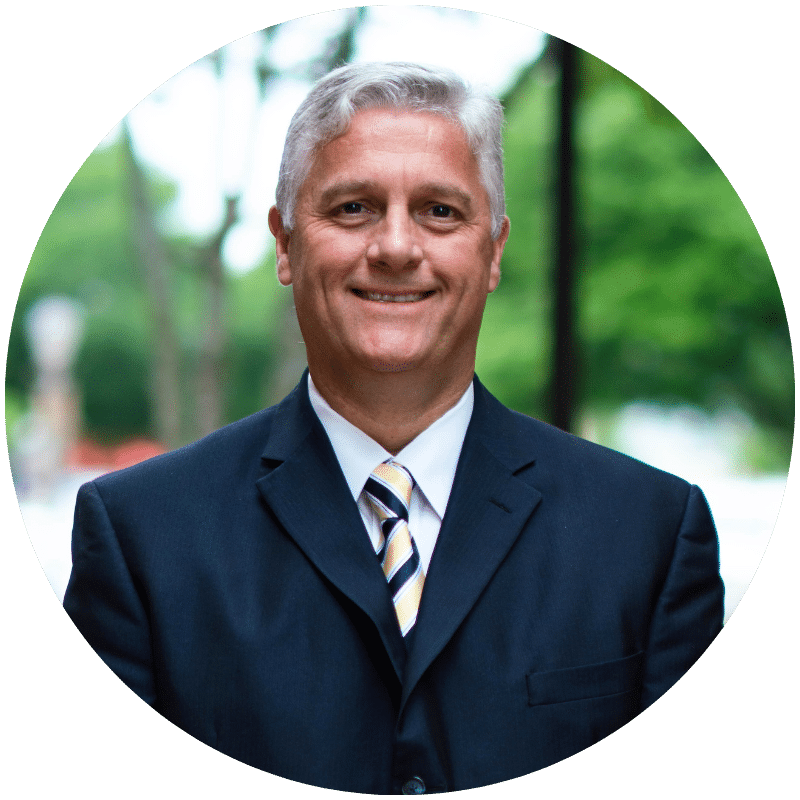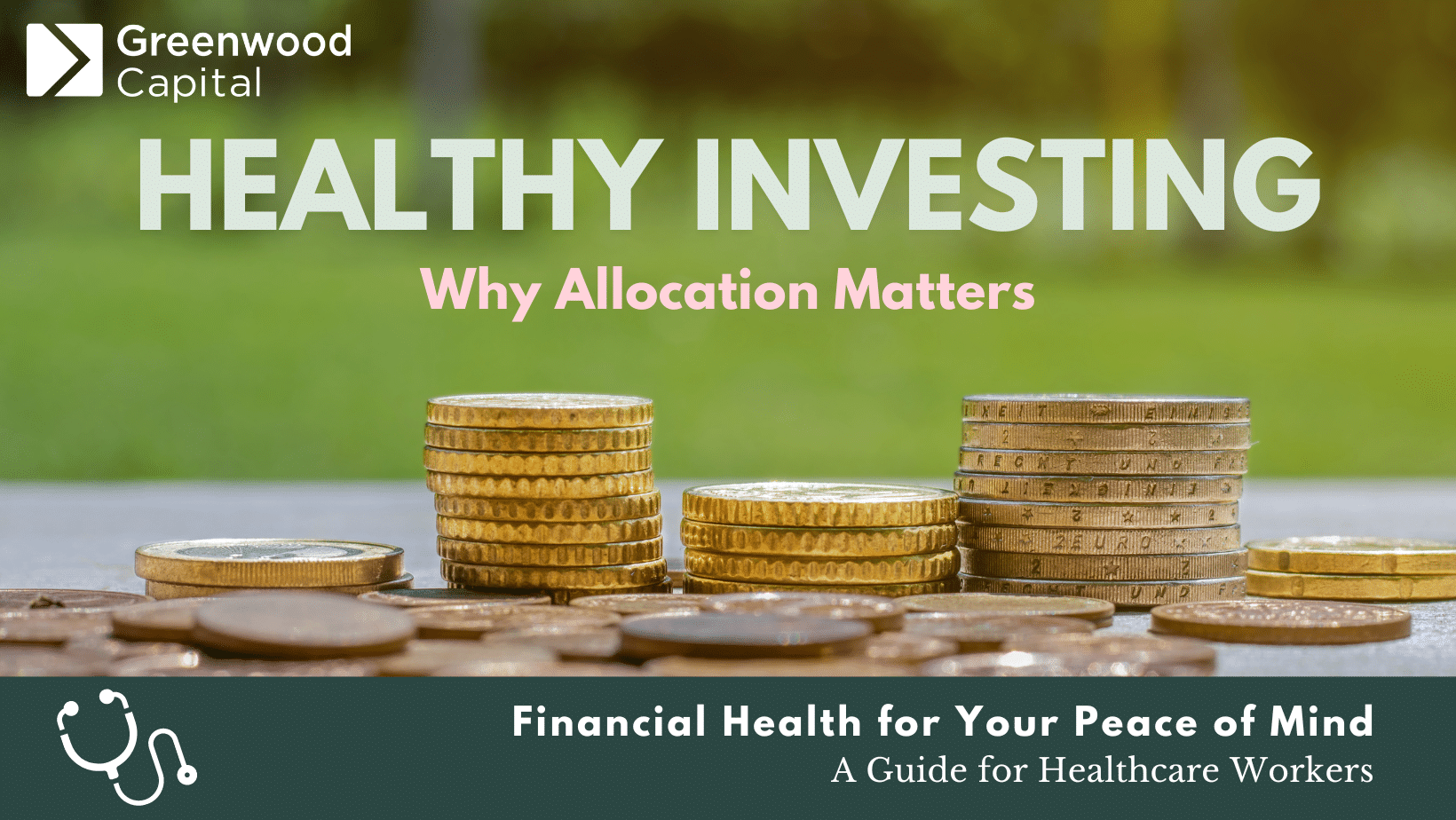Financial Health for Your Peace of Mind
As a healthcare worker, you are used to solving problems and focusing on details. After all, in your career, the stakes can often be life or death.
But it can be more difficult to navigate the maze of personal finance. In this series, we dive into the specific financial issues facing medical professionals at every career stage. We will provide straightforward answers to the economic concerns faced by doctors, nurses, administrators, and other healthcare workers.
As you settle into your healthcare career, you are already balancing the demands of long hours, continuous education, and the complexities of the healthcare system. In your off hours, you may be juggling making time for your partner, attending your kid’s school event, or helping aging parents. Financial planning can take a backseat, especially when things seem to be going well!
Many mid-career healthcare workers are earning higher salaries while experiencing a debt transition from student loans and car payments to mortgages and other “good” debt.
However, as you progress in your career, it is important to make progress on your investing goals. As your retirement accounts grow from contributions, you want to make sure that it is invested for success as well. Your portfolio should be in line with your personal risk tolerance, time horizon, and personal financial situation.
RISK TOLERANCE
As with many things in finance, risk tolerance is incredibly personal. It is not just a matter of figuring out when you want to retire and investing in a countdown profile. If you are not properly invested in an account that matches your risk tolerance, you may find yourself stressed and anxious at any volatility in the market or you may be frustrated when your accounts don’t perform during stock market highs.
It is important to take time to consider how comfortable you are with risk. This is a subjective measure, and it depends on many factors, including your financial goals, life stage, personality, and investment experience. There’s no right answer! Some investors are comfortable with radical, high-risk investments and some people are so risk-adverse that they don’t want to invest at all. Most people fall somewhere in between these extremes, but it is important to be honest with yourself.
Your financial advisor can ask questions and show you sample portfolios to help you figure out what potential losses you find acceptable and what your goals for your accounts are.
The next step is almost as difficult. Are you invested according to your actual risk tolerance?
Special Considerations for Doctors
SPECIALIZATION
“Despite some assumptions, most doctors I work with are better than average savers. But because they are so laser-focused on their career and staying up to date in the healthcare world, they often are not focused on how to allocate those funds.
Many doctors are specialists, focusing on deep, but not broad knowledge. As a CERTIFIED FINANCIAL PLANNER™, I offer broad insight that can take the whole picture into focus. Then I will help my clients with finding that specialized knowledge if they need it, such as an estate planning attorney or a practiced CPA.”
TIME HORIZON
How long your funds have to grow can make a big difference on your allocation. We’ve talked before about the magic of compound interest, and how more time in the market can boost your total returns.
Similarly, there is an inverse relationship between your accumulation years and your distribution period. If you retire early, you will have fewer working years to build up savings. You will also need those savings to last longer. Of course, if you delay your retirement, not only will you have more time to accumulate your retirement nest egg, but you will also be able to delay withdrawing from those savings.
Generally, people tend to invest in riskier stocks with higher rewards earlier in their career, when the portfolio has more time to rebound if there are down markets. By the same logic, late-career professionals tend to be invested more conservatively, since they anticipate needing to access the funds in the near future.
In your prime earning years, you want to be sure you are adjusting your allocation for your time horizon. This may involve gradual changes over the years or choosing an allocation and checking in occasionally. Your financial advisor can help you determine what your time horizon is and how to match your portfolio.
GET PERSONAL
Determining asset allocation and setting up your investments is not as simple as buying a few stocks and hoping for the best. Your portfolio should match your life and specific situation.
Your asset allocation will need to consider the impact of taxes, fees, trading costs, and inflation. You may need to consider expansive tax planning, estate planning, or asset protection. Your accounts may need ongoing adjustments as needed to reflect your circumstances while avoiding knee-jerk reactions in volatile markets.
A financial advisor can help! As a healthcare professional, you apply your expertise and care to improve patient health. Your advisor can do the same for your financial health.
The first step may be creating a financial plan to help you see the big picture and the steps you should take along the way. They can also educate you on different investment options and help you choose the right investment strategies for your short- and long-term needs. In addition, your advisor can keep your finances on the right plan by monitoring your plan, adapting it to your changing circumstances, and keeping you up to date on new legislation and tax changes.
As you grow and progress in your career, don’t neglect your financial health! Take steps to expand your savings and begin investing for longevity.
We are here to help, whether by answering a quick question or building an in-depth personalized financial plan.

John W. Cooper, CFP®
Senior Private Client Advisor
During his first decade in the workforce, John worked at Self Regional Hospital (then Self Memorial) in materials management. His previous experience at the hospital provided him with a unique insight into the financial challenges that healthcare workers face.
Even after pivoting to a career as a financial advisor, John has remained dedicated to supporting nurses, doctors, and administrators. Instead of ordering new operating room equipment, he now provides customized, informed financial plans for his former colleagues.
Further Reading
The Balancing Act of Allocation
Learn more about balancing allocation in your retirement savings.
A Client’s View of the Financial Planning Process
What goes into creating a financial plan?
Start with Strategy: Retirement Savings
What strategies should you be implementing as you start saving for retirement?
Excerpts from or links to this article on the Greenwood Capital Insights page have been included in Greenwood Capital social media pages and distributed Greenwood Capital newsletter. As is the nature of social media, the general public is able to post comments and/or “likes” in response to these excerpts and/or links. These comments are unsolicited and are posted by either clients or non-clients, which could be interpreted as client testimonials or public endorsements, respectively, and no cash or non-cash compensation is provided. A conflict of interest could exist related to unsolicited posts as Greenwood Capital and its investment adviser representatives could indirectly benefit from these posts.












